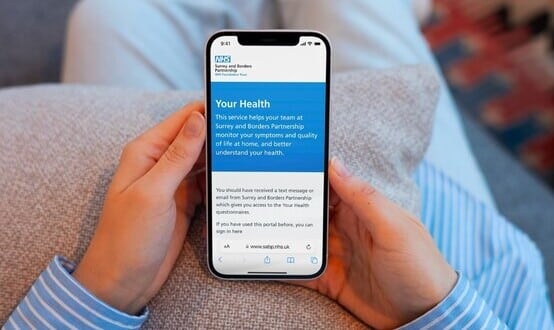It’s time to simplify the process to help drive forward digital innovation
- 28 April 2022

Heather Cook, interim UK managing director of Big Health, examines why digital innovation could hinge on simplified processes.
Even before the pandemic, GPs were facing intense pressure and increasing workloads. Given the upsurge in demand over the past two years, we must make it easier for innovators in digital health technologies to provide scalable solutions to ease the pressure.
These measures should also include the development of an easy-to-understand pathway for innovators with gold standard evidence, indicated by randomised controlled trials (RCTs), and NICE backing to large scale implementation.
The reason why we need a more streamlined and straightforward pathway is because there are so many moving parts in the system.
Combining these moving parts with structural and policy change means navigating the intricate web of policy, evaluation and approvals. Not only is this complicated but incredibly time-consuming and costly. In addition, the ever-changing landscape means we run the risk of patients being denied access to best-in-breed digital solutions that can not only improve their health outcomes, but also lead to savings and efficiencies that the system so desperately needs.
Creating a blueprint to enable commissioning of innovation at scale
One way to address this challenge would be to adopt a blueprint approach – this would allow innovators to understand how to navigate the system and simplify the process of scaling up.
Major advances have been made in software and technology in healthcare: From remote monitoring, to wearables, and apps that promote self-management of disease and encourage healthier lifestyles. However, the NHS is currently struggling to take advantage of many of these advances at a meaningful scale.
While technology may help GPs expand access to much-needed patient services, it’s important to note that not all digital products are created equal. A divide has clearly emerged between wellness apps – which are not proven clinical interventions – and digital therapeutics, which, through data and rigorous studies, are shown to be safe and effective treatments for mental health.
Simply put, wellness products are like vitamins. These apps support healthy individuals but are not effective in treating clinical conditions. Simply put, wellness products are in a similar category to vitamins or supplements. Things that people might choose to use as part of a healthy lifestyle but lacking evidence in treating clinical conditions.
Digital therapeutics, on the other hand, are like digital medicine, with consistent outcomes in the treatment of clinical conditions. Due to the growing prevalence of mental health conditions, and increasing waiting lists for mental health treatments, digital therapeutics have the potential to transform current pathways in mental health.
The NHS Long Term Plan placed a significant emphasis on ensuring digitally enabled care became mainstream. It highlighted the need for technology to play a central role in enabling service transformation, changing the face of healthcare over 10 years with the ability to offer a digital first option for most.
However, when it comes to commissioning those innovations, the pathways and policies needed are way behind the ambition with no clear structure in place for the funding of such developments. Even when NICE has recommended the use of a digital therapeutic in a clinical pathway, it’s unclear how they should be paid for or who should pay for them, which inhibits the ability to get these transformational technologies in the hands of patients.
Support health professionals to offer digital solutions with confidence
Another challenge is that once we have determined the efficacy of digital therapeutic through gold standard evidence, we expect our workforce to have the knowledge and confidence to refer these digital solutions to their patients.
To ensure successful implementation of digital therapeutics to change the lives of patients, we need to place a greater focus on supporting healthcare professionals to help deliver innovation. While there is a plethora of new technologies reaching the market, healthcare professionals find themselves working in an environment which is very different to the one that they trained for.
Driving awareness of the digital therapeutics that are available, as well as providing more opportunities for training, will give healthcare professionals the confidence and knowledge needed to provide the right support to patients. Without adequate training as an integral part of professional development, innovation and the use of new technology risks becoming just an add on to more traditional care, rather than a primary solution.
We can also design self-referral pathways for patients, empowering them to enroll in these evidence-based solutions on their own accord, effectively taking control of their health and their lives by enabling them to find the solution that best suits them.
There could be many different approaches to meeting these challenges, but progress needs to happen at pace. An easy to follow blueprint from evidence and approval to large scale adoption is needed. The alternative is that we fail to secure the future the NHS has envisioned – a health service that creates easy access to proven digital solutions and services that help patients manage their own health, while also encouraging a supportive environment for innovators that are poised to create the next generation of proven clinical treatments.




